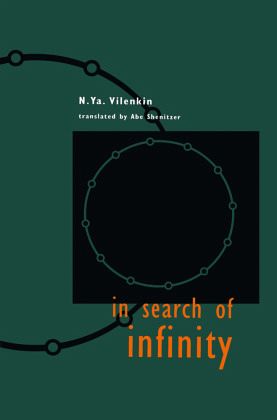Nicht lieferbar

In Search of Infinity
Versandkostenfrei!
Nicht lieferbar
The concept of infinity is one of the most important, and at the same time, one of the most mysterious concepts of science. Already in antiquity many philosophers and mathematicians pondered over its contradictory nature. In mathematics, the contradictions connected with infinity intensified after the creation, at the end of the 19th century, of the theory of infinite sets and the subsequent discovery, soon after, of paradoxes in this theory. At the time, many scientists ignored the paradoxes and used set theory extensively in their work, while others subjected set-theoretic methods in mathema...
The concept of infinity is one of the most important, and at the same time, one of the most mysterious concepts of science. Already in antiquity many philosophers and mathematicians pondered over its contradictory nature. In mathematics, the contradictions connected with infinity intensified after the creation, at the end of the 19th century, of the theory of infinite sets and the subsequent discovery, soon after, of paradoxes in this theory. At the time, many scientists ignored the paradoxes and used set theory extensively in their work, while others subjected set-theoretic methods in mathematics to harsh criticism. The debate intensified when a group of French mathematicians, who wrote under the pseudonym of Nicolas Bourbaki, tried to erect the whole edifice of mathematics on the single notion of a set. Some mathematicians greeted this attempt enthusiastically while others regarded it as an unnecessary formalization, an attempt to tear mathematics away from life-giving practical applications that sustain it. These differences notwithstanding, Bourbaki has had a significant influence on the evolution of mathematics in the twentieth century. In this book we try to tell the reader how the idea of the infinite arose and developed in physics and in mathematics, how the theory of infinite sets was constructed, what paradoxes it has led to, what significant efforts have been made to eliminate the resulting contradictions, and what routes scientists are trying to find that would provide a way out of the many difficulties.



